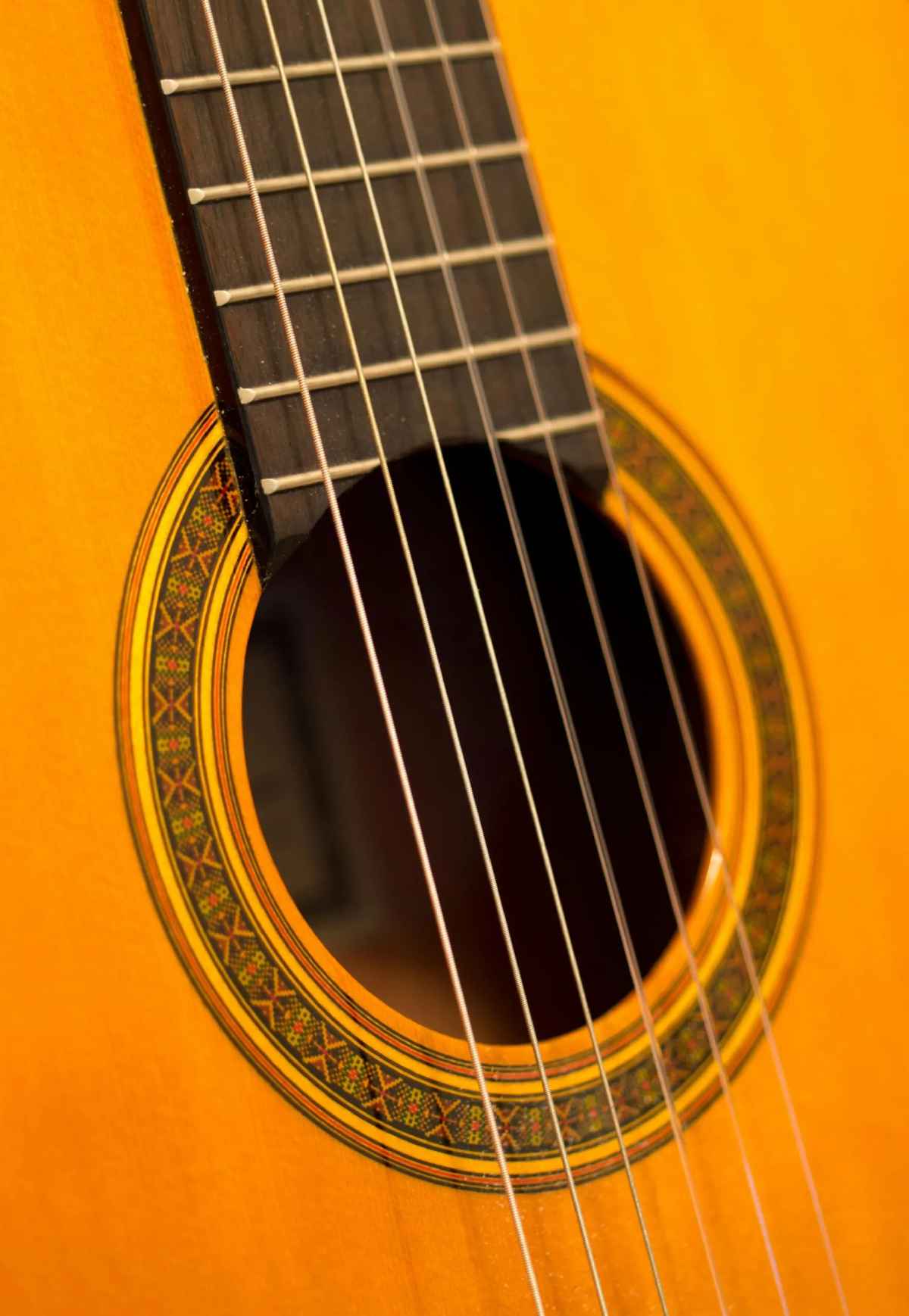by Tommaso Zillio
One of the questions that I receive most often by my beginner students is: “What strings should I use?”
The answer is: it depends. But there are some simple guidelines that you can find useful. The answer is also different depending if you are playing electric or acoustic guitar.
Guitar Strings For Electric Guitar
The vast majority of players go for round-wound nickel strings – in fact that’s what they will give you if you ask for a set of “electric guitar strings” in most music shops.
“Round wound” means that the strings have a rough surface (try sliding up and down the string and you’ll see what I mean): this gives them a brilliant sound that is what you expect from an electric guitar. The opposite (“flat wound”) will give a warmer sound and are sometimes used by jazz players (though they are mostly used by bass players).
Nickel is a great material for guitar strings. If you need something brighter, you can use steel strings: personally every time I tried them I found them too shrill for my taste, but if your guitar sounds too dark, that’s a possible option to explore.
As for the gauge: the thinner the strings, the easier they are to bend. Different gauges give also a different tone, though. It is not true that thicker gauges give automatically a better tone: it really depends on what you want.
I personally use gauge 0.010 strings. If you are starting out and these are too hard on your fingers, then consider use gauge 0.09 strings for a while. These two options should satisfy most guitarists. You can experiment with lighter strings (like gauge 0.08) or thicker ones (gauge 0.011). Some people swear by thicker strings, though honestly the difference in tone is not massive.
As usual experimentation is key. See also what your teacher is using (if you like his sound, then using the same strings is a good starting point)
Guitar Strings For Acoustic (“Steel Strings”) Guitar
The material of the strings is more important here. Personally I have a soft spot for Phosphor Bronze strings, as they have the right ring to me – but other materials work too (Bronze, Brass, Silk and Steel…)
For the gauge of the strings: I recommend gauge 0.011 to start. Gauge 0.010 is usually considered very light on acoustic guitar and tends to sound too “tinny”, but it’s a possible alternative if your hands can not work with 0.011 (if you are injured, for kids playing guitar, etc…). Many acoustic players use gauge 0.012 or even above, but I would recommend staying on the lower gauges is you are just beginning.
Again, make sure to ask your teacher too, and maybe compare notes with your fellow students. While you may not be able to experiment directly with many types of strings with different gauges (who wants to change strings every week just to experiment?) you can play other people’s guitars stringed with different gauges and feel how they play and sounds.
About The Author {-}
Tommaso Zillio is a prog rock guitarist and teacher that lives in Edmonton. Guitar lessons are available for all local students.






